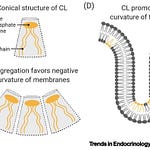Hello,
Today is Day 3 of the American College of Medical Genetics (ACMG) Annual Meeting.
In this podcast, I discuss a few sessions for today (Thurs, March 20) that may be of interest to trainees. Of note, there are several sessions in the late morning that are specifically geared towards mentoring and networking.
The first session is called “Speed Mentoring” (10:15 am). The people you meet at this conference—especially those at a similar training stage—will likely be your colleagues for the next several decades, so it is a good idea to start building connections now. This event is a structured way to start making those connections.
The next session is called “Cracking the Codes: How CPT Codes and RVUs Affect Reimbursement and Credit for the Work You Do” (10:30 am). This topic is not often covered in training but it is important for folks working in a clinical setting. This is because both geneticists and genetic counselors face pay gaps relative to other medical specialties. In order to advocate for fair compensation, we need to have a solid understanding of how we are paid.
At 11:45 AM, there’s the “Early Career Genetic Mentor Luncheon.” This session will feature professionals across different specialties—clinical genetics, prenatal genetics, cancer genetics, biochemical genetics, and laboratory genetics. If you are considering different career options or want to see different ways in which you can apply your genetics expertise, this is a good session to attend.
In the early afternoon (1:30 PM) there will be a session on the forthcoming ACMG standard for variant classification (version 4.0). Variant interpretation is central to what many of us do, and staying up to date on the variant classification guidelines and how they evolve is beneficial.
In the late afternoon (5:10pm) there is a session titled “Fetal Fentanyl Syndrome: A Teratogen-Induced Embryopathy Masquerading as a Metabolic Disease.” Fentanyl, among other opioids, inhibits the enzyme 7-dehydrocholesterol reductase, which is the same enzyme that is deficient in Smith-Lemli-Opitz syndrome (SLO). Patients exposed to fentanyl overlap phenotypically (e.g. 2-3 toe syndactyly, genitourinary abnormalities, cleft palate) and also biochemically (elevated 7-dehydrocholesterol) with SLO. With opioid being use so prevalent in the U.S., this is an important diagnosis to keep on your radar.
Feel free to share your thoughts, and see you in the next post!
Daniel









Share this post